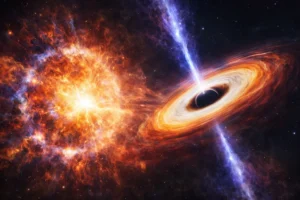Russia launches lunar lander in race to find water on moon

Moscow, The Gulf Observer: Russia launched its first lunar landing spacecraft in 47 years on Friday in a bid to be the first nation to make a soft landing on the lunar south pole, a region believed to hold coveted pockets of water ice.
The Russian lunar mission, the first since 1976, is racing against India, which launched its Chandrayaan-3 lunar lander last month, and more broadly with the United States and China, both of which have advanced lunar exploration programs targeting the lunar south pole.
A Soyuz 2.1v rocket carrying the Luna-25 craft blasted off from the Vostochny cosmodrome, 3,450 miles (5,550 km) east of Moscow, at 2:11 a.m. on Friday Moscow time (1111 GMT on Thursday), with its upper stage boosting the lander out of Earth’s orbit toward the moon over an hour later, Russia’s space agency Roscosmos confirmed.
The lander is expected to touch down on the moon on Aug. 21, Russia’s space chief Yuri Borisov told Interfax on Friday. Russian space agency Roscosmos previously pegged Aug. 23 as the landing date.
“Now we will wait for the 21st. I hope that a highly precise soft landing on the moon will happen,” Borisov told workers at the Vostochny cosmodrome after the launch, according to Interfax.
Luna-25, roughly the size of a small car, will aim to operate for a year on the moon’s south pole, where scientists at NASA and other space agencies in recent years have detected traces of water ice in the region’s shadowed craters.
There is much riding on the Luna-25 mission, as the Kremlin says the West’s sanctions over the Ukraine war, many of which have targeted Moscow’s aerospace sector, have failed to cripple the Russian economy.
The moonshot, which Russia has been planning for decades, will also test the nation’s growing independence in space after its February 2022 invasion of Ukraine severed nearly all of Moscow’s space ties with the West, besides its integral role on the International Space Station.


